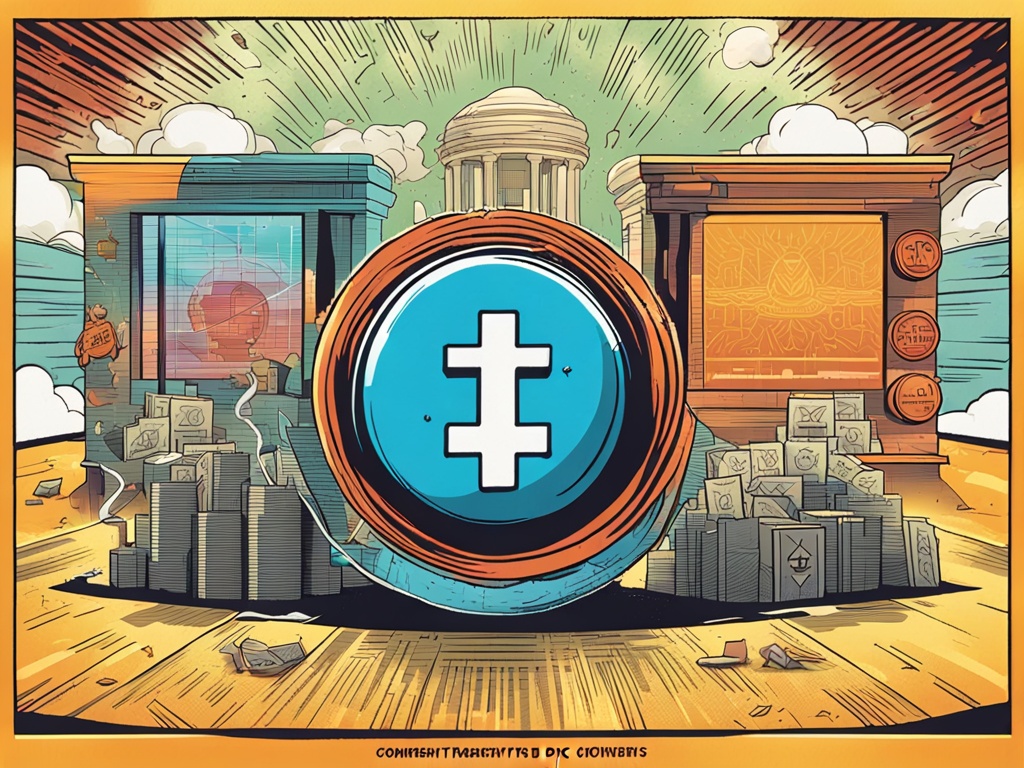Imagine Being on the Frontlines of Crypto Regulation: What Happens When Trust Is Shattered?
So, let’s kick things off with a bit of a scenario. Picture this: you’re a young investor, maybe thinking about putting some hard-earned cash into a promising crypto project. You open your news feed and bam! You see a headline about the FDIC and Senator Lummis mentioning something called “Operation Chokepoint 2.0.” Your heart sinks a little—what now? It’s enough to make you rethink your entire investment strategy, right? But hang on, let’s break this down together because it’s essential to understand how these developments really affect the crypto market.
Key Takeaways:
- Operation Chokepoint 2.0 aims to restrict crypto firms’ access to traditional banking services.
- Senator Lummis claims there was improper conduct by the FDIC, including destroying records.
- Transparency from regulators is now more crucial than ever for the future of the crypto industry.
Understanding Operation Chokepoint 2.0
Okay, so here’s the tea. Operation Chokepoint 2.0 is a regulatory initiative to essentially create barriers between crypto companies and traditional financial services. What that means, in plain English, is that regulators are making it harder for crypto businesses to get access to banking services that they need to operate smoothly.
Now, if you’re anything like me, you’re probably wondering—why the crackdown? Critics say that this kind of action stifles innovation. I mean, just think about it for a sec: if you were a startup trying to change the world with blockchain tech, but you couldn’t find a bank to work with, that would be as frustrating as trying to get Wi-Fi in a basement, right? It’s like they’re putting unnecessary hurdles in the way of something that could potentially be groundbreaking.
The Allegations Against the FDIC
Now, Senator Lummis has really turned up the heat. She claims that whistleblowers have come forward saying that the FDIC might have intentionally destroyed records tied to this whole Operation Chokepoint deal. If true, that’s a serious accusation! The thought of regulators suppressing information just feels wrong, doesn’t it? It makes you wonder about the integrity of the system we’re relying on as investors. Can we actually trust the people who are supposed to keep things fair and transparent?
Lummis has also called for the FDIC to preserve any data related to digital asset transactions, particularly concerning banks like Signature Bank and Silvergate Bank, which have been significant players in the crypto banking space. The implication here? If the FDIC is hiding something, that could be a red flag for the entire industry.
The Ripple Effect on the Crypto Market
So, what does all of this mean for the crypto world? The relationship between regulators and the crypto industry has always been a bit rocky, but incidents like this drive the wedge even deeper. It’s like watching your two best friends get into a massive argument—you don’t want to pick sides, but it’s awkward, and you can’t help but feel uneasy.
The potential fallout from this could be huge. If regulators are found to be acting improperly, it could lead to a reevaluation of how they engage with new technologies. In the long run, there might be increased calls for transparency and accountability, which could help create a more favorable environment for innovation. Imagine being a creator in the crypto world, finally being able to create without feeling like the government is looking over your shoulder at every step!
Practical Tips for Investors
-
Stay Informed: Always keep an eye on the news. This situation is ever-evolving, and what you read today might be completely different tomorrow. Subscribe to trusted crypto news sources so you won’t miss anything important.
-
Evaluate Your Risk Tolerance: If the regulatory landscape is making you anxious, it might be a good time to reassess your crypto investments. Ask yourself if you feel comfortable with the potential risks moving forward.
-
Diversify: You know the saying—don’t put all your eggs in one basket. In the crypto world, it’s the same. Consider spreading your investments among various tokens and projects to mitigate risk.
-
Engage with the Community: Join forums and social media groups that discuss crypto regulations. Sometimes, getting a variety of perspectives can help clarify things for you.
- Consult a Professional: If you’re feeling overwhelmed, seeking advice from financial analysts can provide some clarity. It’s never a bad idea to get another set of eyes on your investment strategy!
My Personal Insights
Honestly, it’s both exciting and terrifying being involved in the crypto space right now. Personally, I’ve experienced the thrill of investing in projects only to feel that gut-wrenching anxiety when regulatory news drops. Seeing how much innovation is happening in the crypto realm, coupled with the challenges like these from the FDIC, really has me questioning how we can balance oversight while also fostering growth.
The future of our beloved crypto space could go in so many directions. With calls for transparency and accountability perhaps becoming more amplified post this situation, we might get to witness a more structured and fair path forward. I remain optimistic about the possibilities that this will bring for emerging technologies and for us as investors.
In a world that features constant shifts, let me leave you with this thought-provoking question: What do you think is the ultimate balance between regulation and innovation in the ever-changing landscape of cryptocurrency?





 By
By

 By
By
 By
By
 By
By
 By
By